Hamish Thomson: The Power of Aligning Your Teammates with a Shared Purpose
How to unlock your teammate's potential with a shared purpose and agenda with Hamish Thomson.
Hamish Thomson formerly served as the Regional President and Global Brand head for Mars Inc in addition to serving as the former Senior Marketing and Sales Lead for Reebok International. Presently, Hamish is the author of “It’s Not Always Right to be Right”, where he combines lessons from his leadership career in addition to his family life to create an informative read.
In this episode, Hamish teaches us about the power of making diverse hires. Listen to this episode 9or read the transcript below) to learn how to hire people that possess characteristics that aren’t similar to your own.
1 What were some mistakes that you may have made early on in your management career?
The first mistake was when I started to hire people who thought exactly like me. I love having different perspectives and newness, but I unintentionally had this bias of hiring people who thought like me which is probably the worst mistake a leader can make. Another common mistake leaders make is keeping the same team because we all tend to keep a team around us that we really love. Additionally, another major mistake that I made early on as a leader was thinking that I always had to shelter my team so I would always step up in difficult situations and take on everything instead of teaching my team to learn and adapt in those types of situations.
2 How did you realize that you were hiring people with similar characteristics to your own?
I’ve been very lucky because I’ve been part of exceptional businesses and exceptional cultures and I’ve been fortunate to be reasonably successful in regard to results over the years and I think it began to happen for me when I saw that new perspectives led to bigger transformational results. I then began a real mission to try to recruit people that are dramatically different from me. I’m a massive believer in diversity and inclusion and embracing different ways of thinking and approaches. It’s not only about the people that look different from you, they also have to think differently from you.
3 What are some things that you can do to help your team work better together?
You give them a shared purpose and a shared agenda. You really begin to unlock team potential by giving people a shared purpose and a shared agenda to work on. As a leader, if you encourage your reward, and recognize people who are good at integrating and connecting others it will go a long way. When you do get alignment, or cohesion behind a shared purpose, it is pretty hard to stop.
4 How do you know if someone is genuinely curious?
You find out pretty quickly once you start to get to know them and great companies will have a way of actually interviewing for impact directly upfront and with that it becomes very obvious. If they aren’t curious or aligned, it doesn’t mean the interviewee is wrong, it may just mean they aren’t right for your culture.
5 What drove you to write your book?
It’s similar within North America, but within Australia, the last one to two years have been going down the lockdown path so writing the book was both personal and prevalent. I thought that leadership was all about being right in every debate, discussion, or dialogue, and that I’d have to go into every conversation ready to win and I always thought there had to be a loser. I did ok with this mindset and my success was subpar but then I started to reflect on my behavior and I realized how restrictive it was. Now my belief is that the best breakthrough results come when you have stage two and stage three of the relationship when the depth and the trust and the vulnerabilities are displayed because that’s where the massive opportunity is. It’s not always right to be right and I wanted to spread that message.
6 How do you merge teammates that may have come together as a result of a merger?
It’s all about honoring the past, being appreciative of the good things that took place, and equally respecting the future. It’s also about conviction leadership and making sure people don’t walk away disengaged or bad moth X, Y, and Z. it’s important that you note that that kind of behavior won’t be tolerated.
7 What are some effective ways to provide hope for the future?
It’s really important to deliver on the business. Unfortunately, what I see happen too often is constant change and that’s ok but you have to be strategic instead of hoping from one direction to another. You need to provide hope that there is a good future, its vision-related, purpose-related and it contributes to your greater values. It’s natural for the direction or course of your organization to change over time but if you don’t provide hope for the future, there’s no way people will be able to withstand the constant change.
8 Can you expand on the chapter in your book titled “Who is writing your agenda?”
I’m from New Zealand originally and there’s a great rugby coach that we had called Sir Steve Henson, and he’s got this concept where he says that you don’t need to lose to learn, but it sure helps. It’s so true, I’m not always successful in everything I can do but I can control my agenda to contribute to my success and by doing so I’m getting ahead of the curve. As a leader, you need to be able to plan and envision your future state. My personal belief in business is that you should be doing everything you can to get ahead of the curve.
9 Do you have any tips, tricks, or words of wisdom for managers or leaders that are looking to get better at their craft?
I have this belief that I refer to as the 98% rule and it means that 98% of what you hear, particularly regarding feedback should go over your shoulder and only around 2% should resonate with you. The reason I say this is because everyone receives a lot of feedback and it can be overwhelming. As an individual, you want to learn and adapt but you also have to remain true to who you are and strive to not change your persona because you should always strive to be 100% authentic. My main encouragement to everyone is to consistently refine who you are, be very curious and open, but don’t fundamentally change because as soon as you do, you’re trying to be somebody that you’re not and that can be a really painful experience.

![How to Apologize Professionally In an Email [+ Templates]](https://fellow.app/wp-content/uploads/2022/06/How-to-Apologize-In-an-Email-2.jpg)

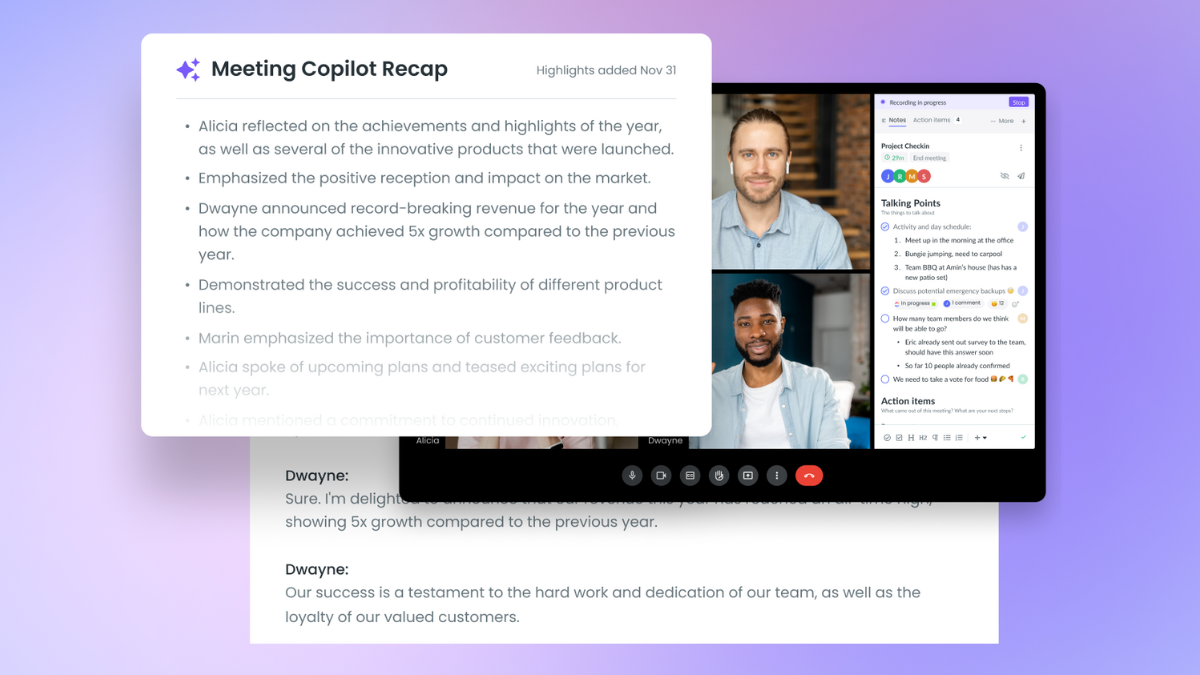





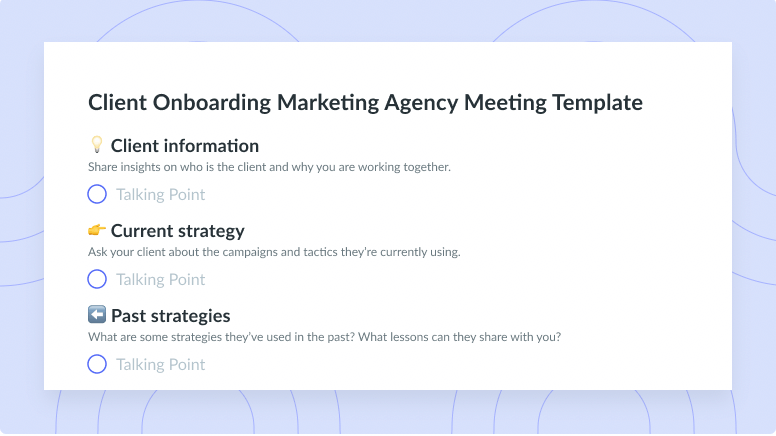
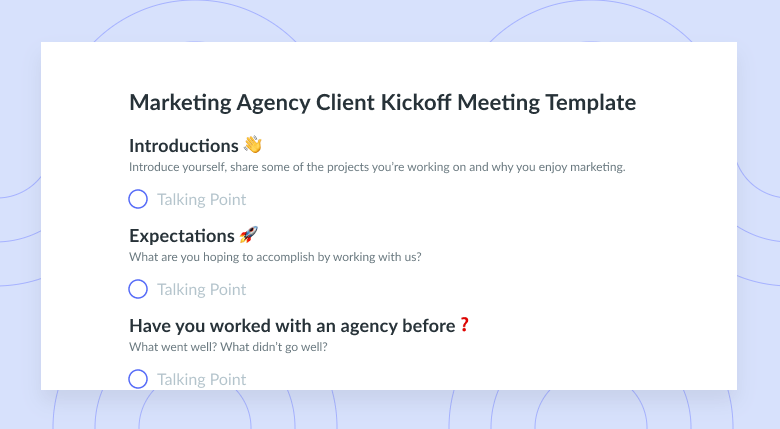
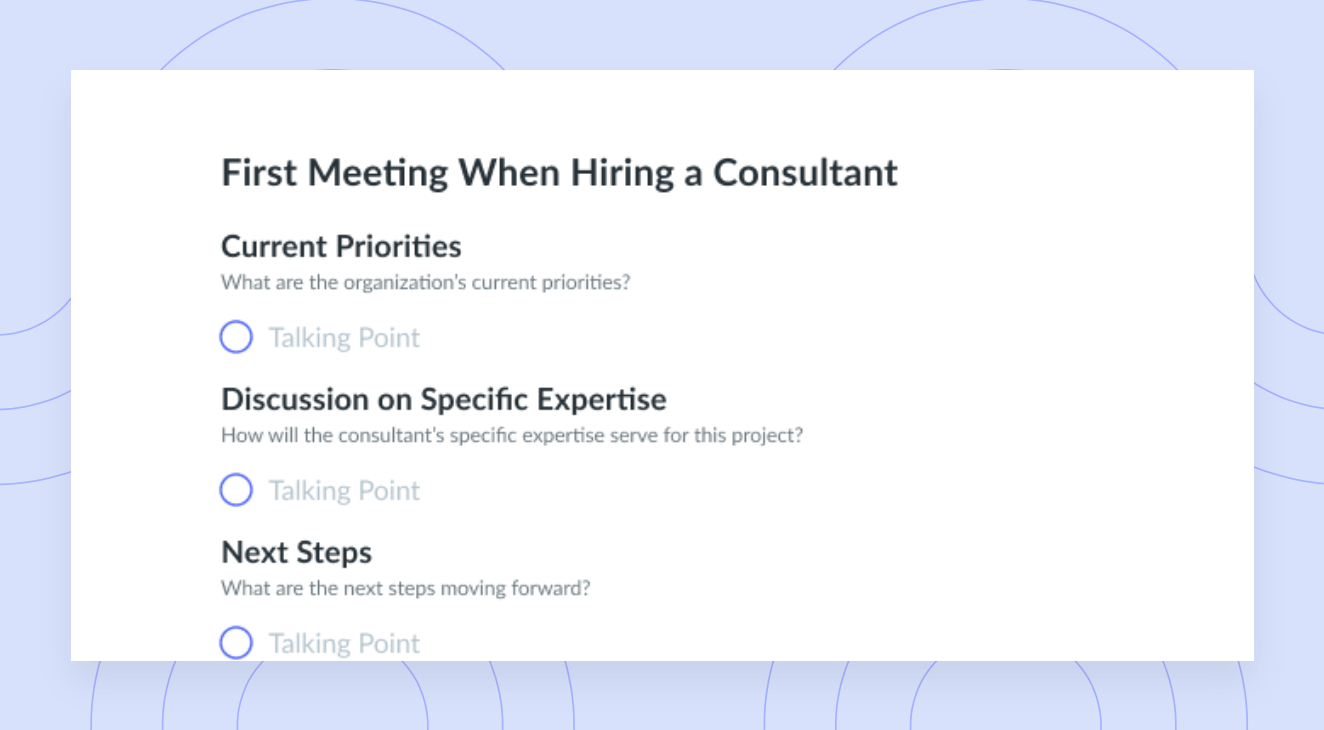
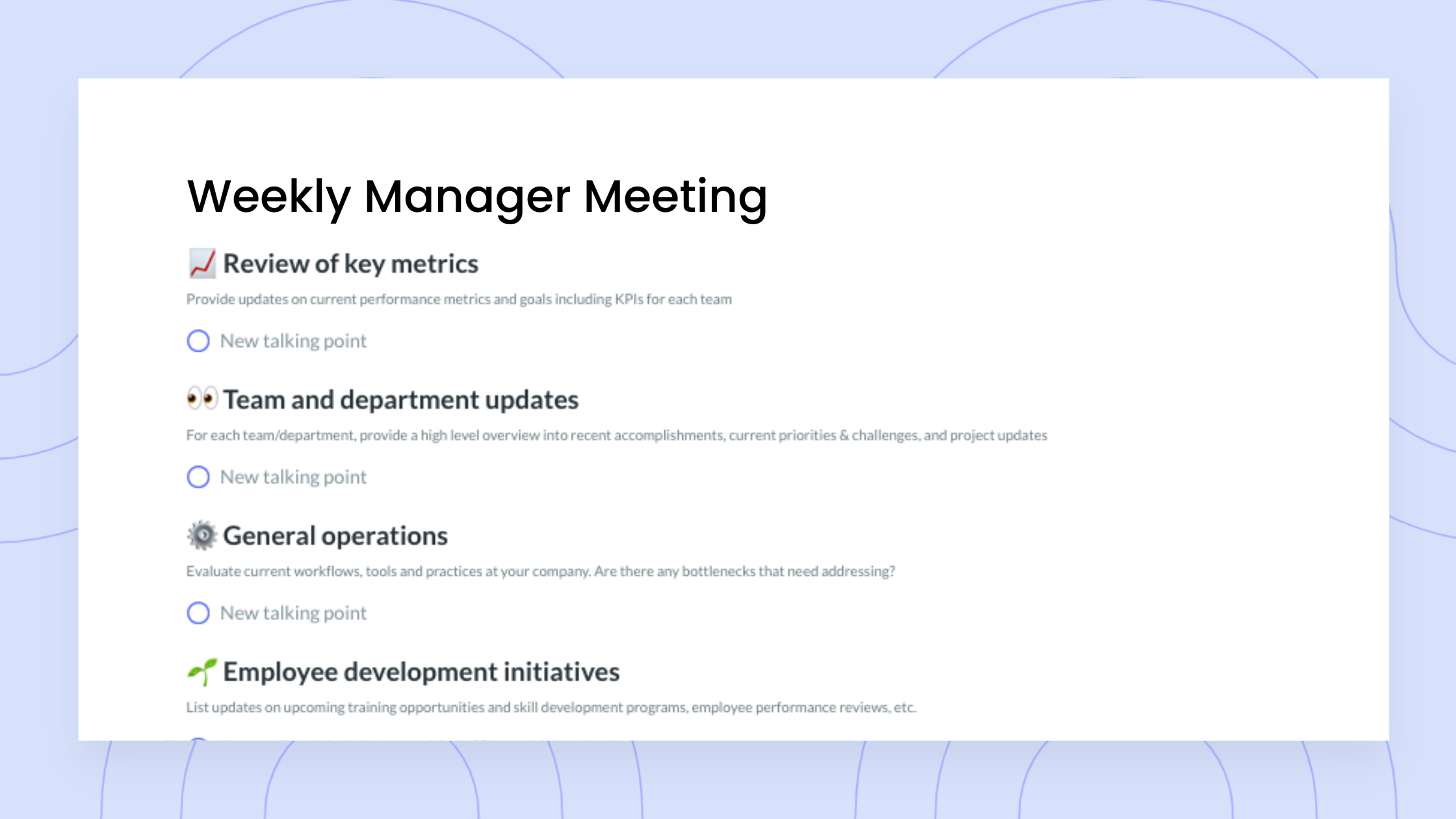
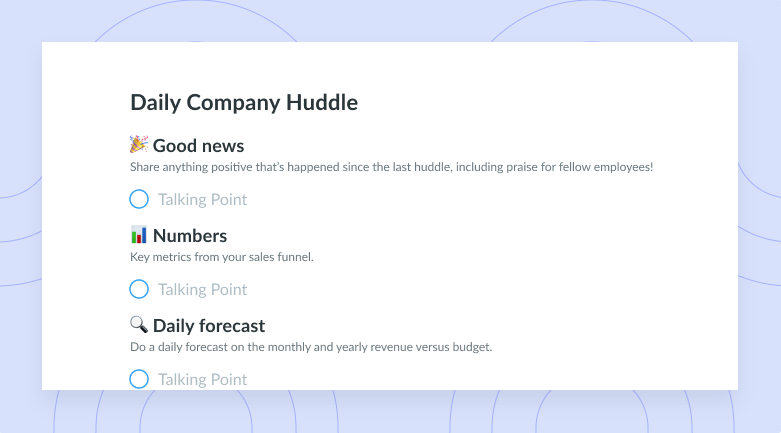
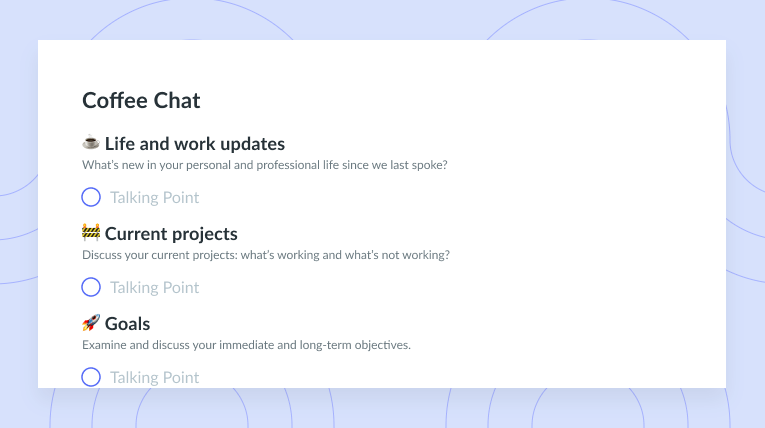

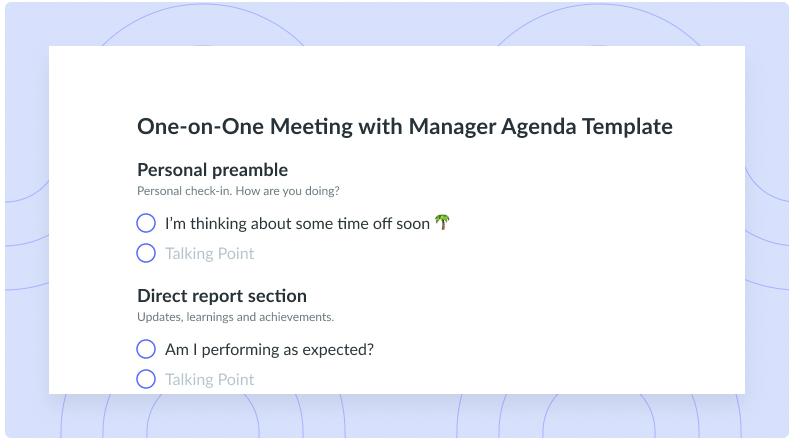
![Crisis Management Round Table [Daily Check-In] Template](https://fellow.app/wp-content/uploads/2021/09/Crisis-Management-Round-Table-Daily-Check-In-preview.png)











